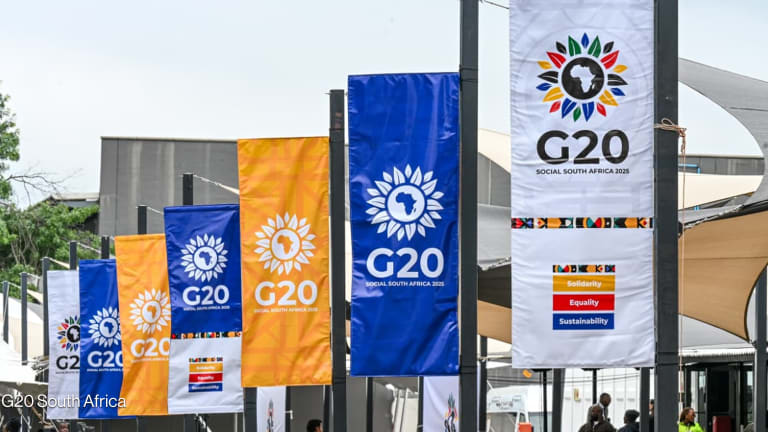Taking public transport in Africa is an interesting experience and helps you understand the small obstacles that people living here have to overcome every day. As with many aspects of Zambian life, the people seem to stoically accept the problems without ever really questioning the cost of this to society.
Good public transport holds the opportunity to stimulate society economically and democratically by reducing the cost and difficulty of travel. Equally, poor public transport can act as a hand brake on development.
Last month, my partner Betty and I were given plenty of time to consider the relative merits of Zambian public transport.
The Lusaka City bus station is practically like all bus stations in southern African. As you approach the station, an increasing number of hawkers want to carry your bags, buy you a bus ticket, or hail you a taxi. Sadly, none of these people will be able to give you any accurate information about what time your bus leaves regardless of whatever promises they make.
As a standard practice in Africa, buses do not leave at scheduled times but rather when they are full. Therefore, a hard working busboy's job is to ensure that prospective clients choose their bus before anybody else, with their sales pitch varying from blatant lies to physical intimidation.
On April 7, Betty and I arrived at the Lusaka bus station 9 a.m., hoping to catch a bus to Chipata that would leave as quickly as possible. Chipata is eight hours, or 800 kilometers, away from Lusaka. The plan was to spend the night in Chipata with a friend who was leaving to return to the U.K. the following morning, then continue on with our journey to Lundazi, a town 200 kilometers away from Chipata.
On arrival, we were quickly surrounded by the usual pack of porters "offering" their assistance. We tried to avoid their attention until we ascertained which bus was going to leave first based on which bus appeared to be the fullest.
Told by the driver that the bus was leaving at 10 a.m., we predicted a two-hour wait. So we left our bags in the hold and went to browse around the nearby Kamala market.
We returned to the bus around noon. After half an hour, we, with our fellow passengers, were moved to the adjacent bigger bus, which was now looking decidedly empty. Reassured that this bus would be leaving "now now," which means immediately in Zambian, we ate our lunch and went to sleep.
At 1:30, with the bus irritatingly stationary, I made enquiries as to when the bus would be leaving.
"Fourteen," the bus driver said, meaning 2 p.m.
This meant it was unlikely we would arrive before 10 p.m. in Chipata, by which time our friend would have gone to bed, essentially making our trip pointless. Nevertheless, having paid our money, we were not keen to simply get off the bus.
Depending on whether Betty or I asked the bus driver, expected departure times ranged from 4 to 6 p.m. By 3 p.m., we decided that we would be better served getting the bus at 4 a.m. the next day, which we knew would leave on time. After half an hour of negotiations, we were told we would be allowed to leave the bus but not be reimbursed the $40 we had paid for our tickets. Incredibly, the negotiations did not consider this; it was assumed that we would not get any money back. The bus driver simply wanted to hold us hostage as he believed having mzungus [white people] on the bus made it more likely that other passengers would join us. Even after all this, we had to sneak our bags out of the hold of the bus when he wasn't looking.
Six and a half hours after arriving, and with US$40 less in our pockets, we left the bus station. Yet we were lucky. We could afford to take the financial hit, and in comparison had arrived late. One lady I spoke to had been on the bus since 5:30 a.m., meaning she and her small family had been there for 10 hours without the bus moving an inch. Despite her frustrations, she remained resigned to it all.
At least five buses – all going to the same destination and all half full – sat beside us, and their passengers equally passive to their fate. With effective coordination, two buses could have left, with one remaining half full. Is it possible to put a cost on this combined waiting time? It certainly shows that competition does not always equal efficiency.
Instead, all five were sitting at the bus stop, revving their constantly running engines and beeping their horns in an imitated leaving ritual that had the hawkers howling. Who knows how much petrol this wastes? But it is a sales ploy that only the uninitiated fall for.
It is impossible to accurately calculate how much inefficiency this creates in Zambia´s economy, but it is easy to see the impact it has. Anyone travelling by public transport assigns a whole day to travelling, even when covering relatively small distances. Therefore, you need to take three days off for a one-hour meeting. Furthermore, there is the wastage of potentially productive skills of individuals who are sitting idle on a bus, not to mention what the incredible frustration does to your heart rate and mental health.
Additionally, because of the incredible hassle, people are unwilling to travel, thus bringing less investment in the country's transport and road infrastructure. Anyone working for a rich-enough organization travels by the company's transport, which brings huge costs to fragile roads in terms of wear and tear; to the organization and environment in terms of petrol costs and maintenance; and to the government in terms of foregone taxes. Aid agencies and NGOs, rather than supporting public services, are well-justified in using their shiny white four-wheel drives.
The richest organizations and tourists avoid the roads altogether, opting to fly – again reducing the potential investment in roads. Bad roads mean high transport costs, which reduce the amount of traffic, thus commencing the whole cycle again. All of this not only impacts on the economy but undermines democracy by making communication between rural communities and decision-makers in Lusaka extremely difficult.
This charade is played out on a daily basis. The cost of this wastage cannot be afforded by a country as financially weak as Zambia.
As I made desperate pleas for a refund, I realized I had little to negotiate with. All I could promise was that I would tell as many people as possible not to use Kapakele Motors. Unlike most promises concerning Zambian buses, this is one that will be kept.
Postscript: There appears, in my experience, to be one bus company that keeps relatively good time: Juldan Motors. In an attempt to support its timekeeping, I want to mention the company. Unsurprisingly, because its buses leave on time, they also leave full. Sadly, their rivals fail to recognize this causal relationship and choose to rely on their "persuasive skills" to fill their buses.








